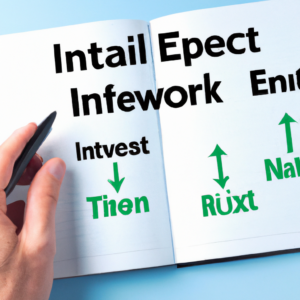
Transforming Finance: The Blockchain Revolution
The Rise of Blockchain in Finance
Blockchain technology, originally developed as the accounting method for the virtual currency Bitcoin, is now finding a new lease on life in the finance industry. Unlike traditional methods, blockchain offers security, efficiency, and transparency, revolutionizing how transactions and data are managed across the financial sector. This technology’s decentralized nature ensures that each transaction is securely encrypted and can be verified within the network, reducing the likelihood of fraud and errors.
Key Areas of Blockchain Adoption in Finance
Blockchain technology is being adopted across various segments of the financial industry. Here are some of the key areas where its impact is most felt:
Digital Currencies and Payments
Blockchain is the backbone of cryptocurrency transactions. Beyond that, it is increasingly used for facilitating cross-border payments, reducing the time and cost associated with traditional banking methods.
Smart Contracts
Smart contracts use blockchain to automatically execute contracts when conditions are met. This is particularly useful in loans and securities, where it can reduce paperwork and speed up the execution process.
Identity Verification
Blockchain offers a more secure and efficient way to manage digital identities, essential for KYC (Know Your Customer) and AML (Anti-Money Laundering) processes in finance.
Record Keeping and Auditing
With each transaction or data entry being recorded on a blockchain, the technology offers an immutable and transparent way to maintain records. This can significantly ease the auditing process, reducing the time and cost involved.
Benefits of Blockchain in Finance
The adoption of blockchain in finance brings several benefits:
Increased Security
Due to its decentralized nature and cryptographic algorithms, blockchain provides a secure platform for transactions and data management, reducing the risk of hacks and fraud.
Enhanced Efficiency
Blockchain technology eliminates the need for middlemen in many processes, thereby reducing delays, costs, and errors in transactions. This real-time processing can significantly enhance efficiency.
Improved Transparency
Blockchain’s ledger system ensures that all transactions are transparent and traceable. This improves trust among parties in the financial ecosystem.
Challenges in Adoption
Despite its advantages, the adoption of blockchain in finance is not without challenges:
Regulatory Hurdles
The regulatory framework for blockchain and digital currencies is still evolving. Financial institutions need to navigate these uncertainties, which can be a barrier to implementation.
Integration with Legacy Systems
Integrating blockchain with existing financial systems and processes can be complex and costly, requiring significant time and resources.
Scalability and Performance Issues
The current blockchain platforms may face scalability issues as they handle a growing number of transactions, potentially affecting performance and speed.
Future Prospects
Despite these challenges, the future of blockchain in finance looks promising. Innovations and improvements in blockchain technology continue to emerge, addressing existing limitations. As regulatory frameworks become clearer and integration processes more streamlined, we can expect wider adoption of blockchain across the finance industry. The potential for more secure, efficient, and transparent financial systems makes blockchain a technology to watch in the coming years.

